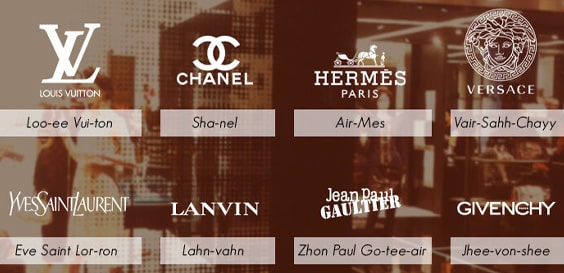
People may not always try to pronounce a brand name correctly due to reasons like unfamiliarity, language barriers, lack of confidence, laziness, or indifference. They may not see the importance of accurate pronunciation or feel that it doesn't significantly impact their communication or engagement with the brand.
There are several brands with names that can be challenging to pronounce for various reasons. Here are a few examples:
- Häagen-Dazs: This American ice cream brand deliberately chose a name that sounds Scandinavian, but it's actually a made-up word. It can be difficult for some people to pronounce the "ä" and "zs" sounds.
- Givenchy: Givenchy is a French luxury fashion brand. The combination of the "g" and "v" sounds, along with the silent "y" at the end, can make it tricky for non-French speakers.
- Worcestershire: While not a brand name itself, Worcestershire sauce is a popular condiment with a name that can be challenging to pronounce. The combination of "worce-" and "-shire" can be particularly confusing for non-native English speakers.
- Moët & Chandon: This famous champagne brand from France has a name that can be tricky to pronounce correctly. The umlaut over the "ë" and the combination of the "t" and "d" sounds can pose challenges.
- Yves Saint Laurent: Yves Saint Laurent is a renowned French luxury fashion brand. Non-French speakers may struggle with the correct pronunciation of "Yves" and the combination of "Saint" and "Laurent."
It's important to note that pronunciation can vary based on regional accents and languages, so what may be difficult for one person could be easier for another.

An easy to pronounce brand name - the key to success?!
The ease of pronunciation of a brand can play a role in its future success for several reasons:
- Memorable and Shareable: Brands with easily pronounceable names are more likely to be memorable to consumers. When a name is easy to say, it is also easier to share through word-of-mouth recommendations. This can lead to increased brand recognition and awareness, which are important factors in building a successful brand.
- Accessibility and Approachability: Brands that are easy to pronounce are generally perceived as more accessible and approachable. When consumers can effortlessly say and remember a brand name, it creates a sense of familiarity and comfort. This can help in building positive associations and fostering a stronger connection between the brand and its target audience.
- Word-of-Mouth Marketing: A brand with an easily pronounceable name is more likely to be mentioned in conversations, both offline and online. When people find a brand name easy to pronounce and remember, they are more likely to recommend it to others. Positive word-of-mouth marketing can significantly contribute to a brand's growth and success.
- Global Expansion: If a brand aims to expand internationally, an easy-to-pronounce name becomes even more critical. A name that can be pronounced and understood across different languages and cultures increases the brand's chances of resonating with a broader audience. It can help eliminate potential language barriers and facilitate brand recognition in various markets.
- Positive Brand Perception: Brands with names that are difficult to pronounce may face challenges in terms of perception. Consumers may perceive them as unfamiliar, complicated, or even untrustworthy. On the other hand, brands with easily pronounceable names often evoke positive associations, implying simplicity, clarity, and approachability.
While an easy-to-pronounce brand name is not the sole determinant of success, it can contribute to a brand's overall appeal, recognition, and growth potential.